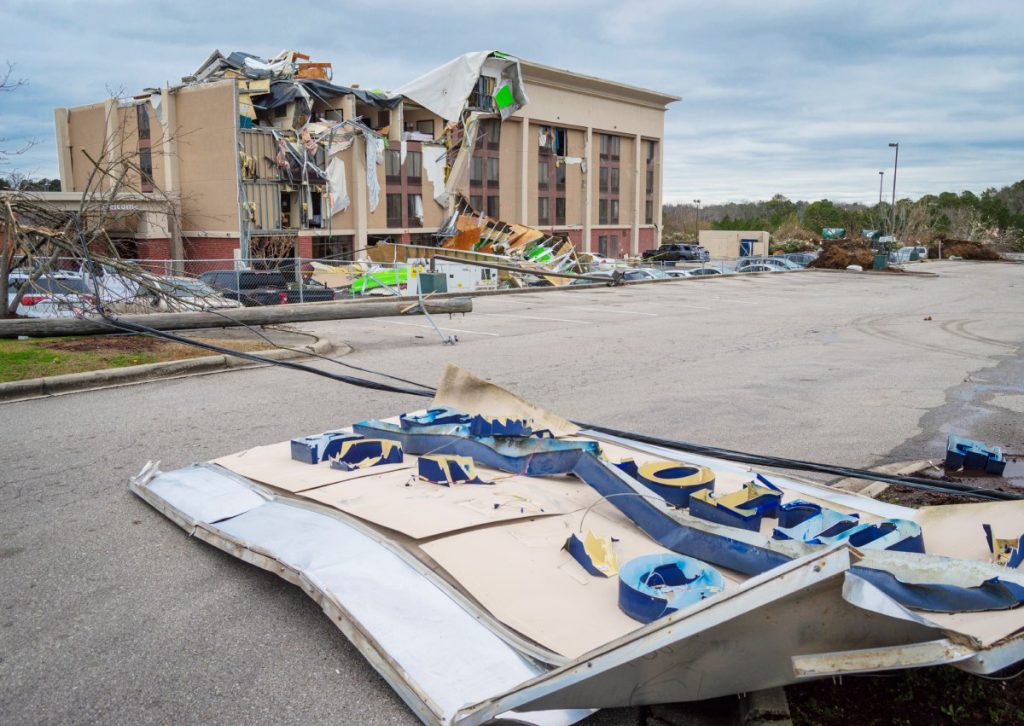In a previous post, Failing to Obtain Regular Appraisals Can Hurt Associations After A Large Loss, I wrote about the negative effect that a coinsurance provision can have on an association’s ability to recover after a large loss. Equally as problematic, almost all policies issued in Florida contain a separate deductible which applies only in the event of hurricane damage. Instead of a small deductible, most “Hurricane Deductibles” are based on a percentage of the policy limits. These deductibles vary, depending on the policy and the association’s choices when purchasing the policy, and they can rise as high as 10%.
After Hurricane Wilma, many associations were pleased to learn that they had only suffered a small amount of damage. After learning the devastating effects that the storm had on many buildings, associations were grateful to incur damages of only a few hundred thousand dollars. Unfortunately for many, coinsurance penalties and high hurricane deductibles were applied, leaving associations without any recoverable proceeds to fix the buildings.
Florida Statute §627.701 authorizes and regulates coinsurance penalties and hurricane deductibles. Florida Statute §627.701(4)(a) states:
Any policy that contains a separate hurricane deductible must on its face include in boldfaced type no smaller than 18 points the following statement: "THIS POLICY CONTAINS A SEPARATE DEDUCTIBLE FOR HURRICANE LOSSES, WHICH MAY RESULT IN HIGH OUT-OF-POCKET EXPENSES TO YOU." A policy containing a coinsurance provision applicable to hurricane losses must on its face include in boldfaced type no smaller than 18 points the following statement: "THIS POLICY CONTAINS A CO-PAY PROVISION THAT MAY RESULT IN HIGH OUT-OF-POCKET EXPENSES TO YOU."
While the statute is clear that this language must be contained in the policy, it has become apparent since Hurricane Wilma that many insurers have failed to comply with the statutory requirements. Arch Specialty Insurance Company, QBE, and Citizens Property and Casualty Insurance Corporation, to name a few, all have issued policies that do not comply with §627.701.
Despite non-compliance with the clear language of the statute, many insurers have applied Hurricane Deductibles and Coinsurance Provisions to reduce, and in some circumstances avoid, claims payments.
There is ongoing litigation concerning whether non-compliance with Florida Statute §627.701 makes the hurricane deductible and coinsurance provision unenforceable. In fact, these issues are currently pending before the Florida Supreme Court in Chalfonte Condominium Apartment Association, Inc. v. QBE Insurance Corporation. Also, several class actions have been filed in order to recover monies improperly withheld because of Hurricane Deductibles and Coinsurance Provisions that did not comply with the statutory requirements.
The recourse sought by the policyholders in these cases are simple. If an insurer did not comply with the clear language of §627.701, the percentage Hurricane Deductible and Coinsurance Provision should not apply. Money improperly deducted should be returned and claims that did not meet the high deductibles should be paid.
The implications of this could be extremely beneficial to every association involved, especially those who were forced to conduct special assessments to pay for Hurricane Wilma damage.
All associations that suffered damage from Hurricane Wilma should check their insurance policies to see if the correct language is contained and whether it conforms to the statutory requirements. If not, you should consider contacting an insurance coverage attorney to determine whether you might have a cause of action.


